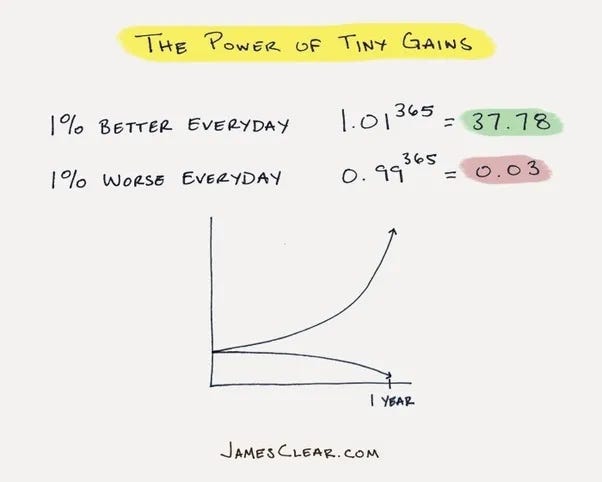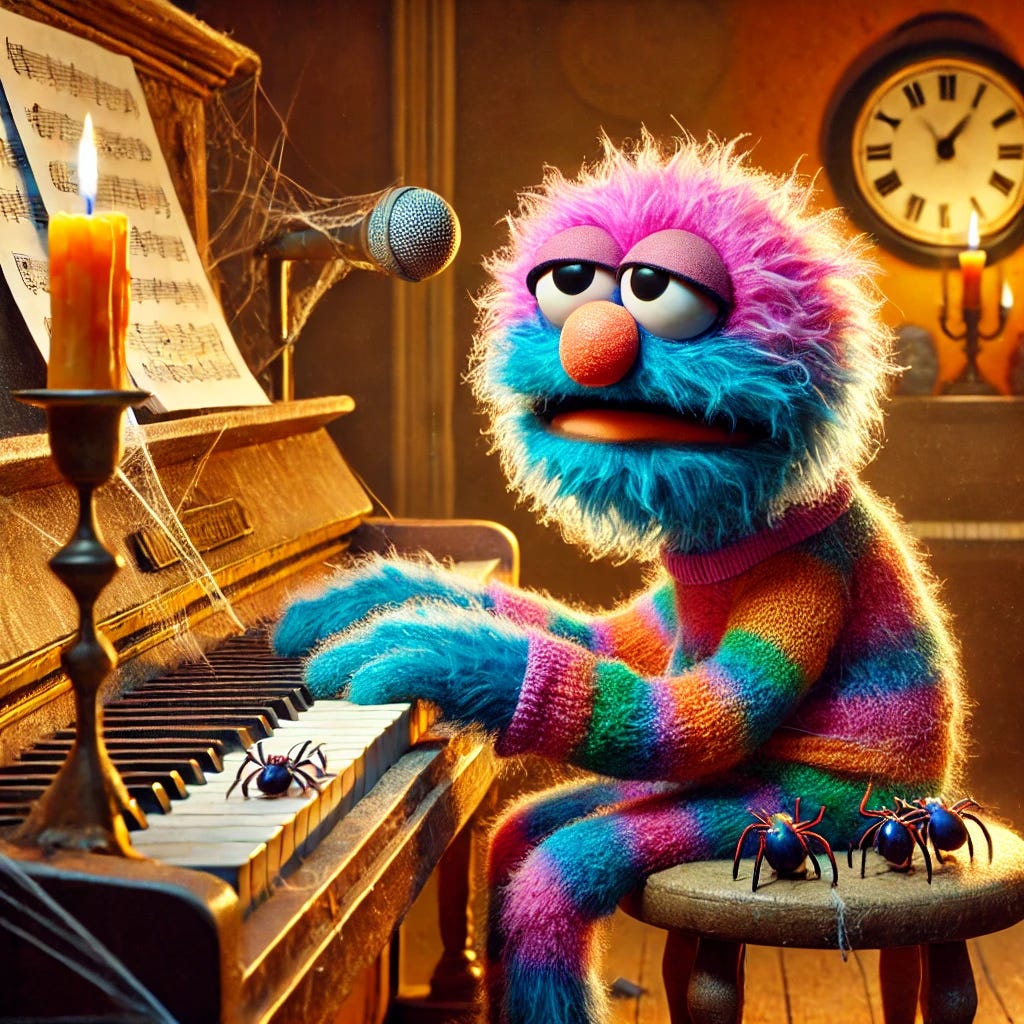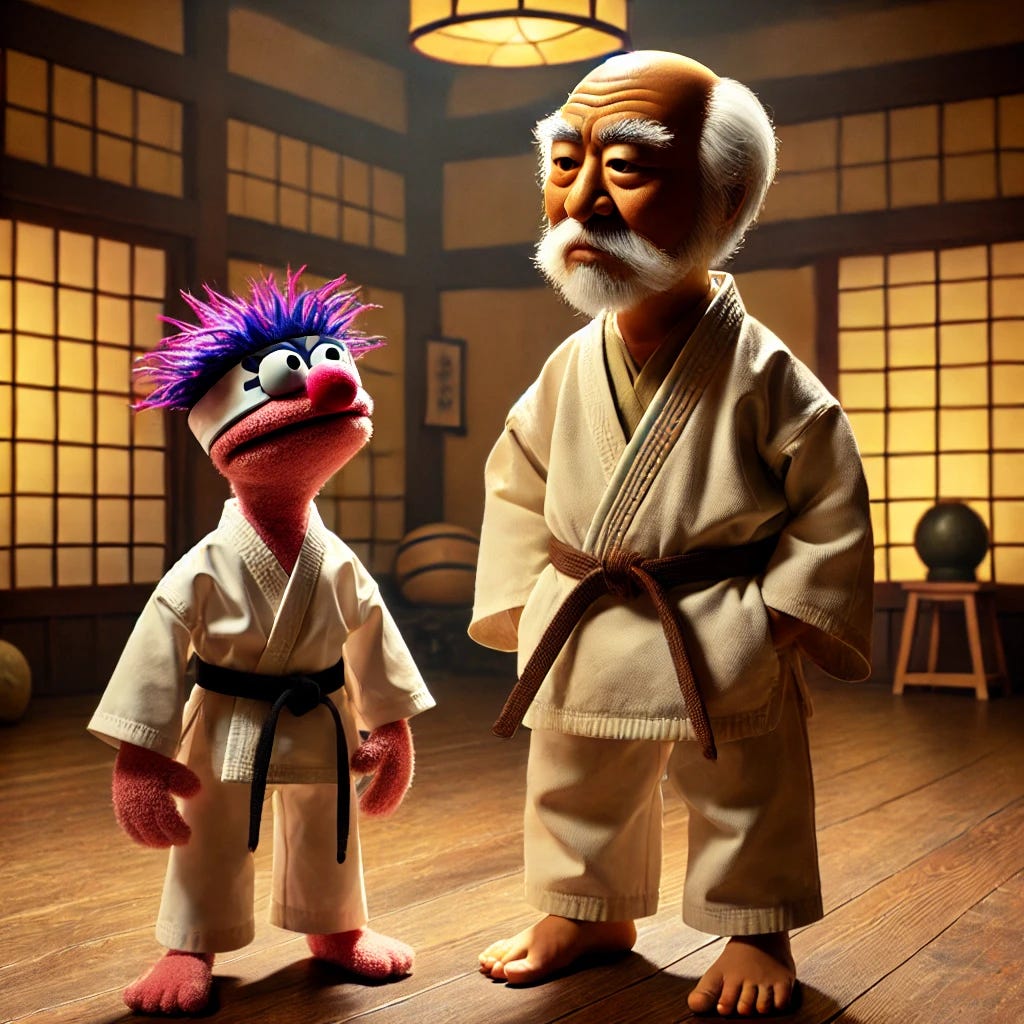The Talent Trap: Embracing Boredom to Unlock Mastery
How I learned to choose my development areas and to be OK with boring practice routines
We don’t pay good money to watch our favorite artists or athletic heroes practice.
We assume they’ve done their 10,000 hours somewhere, or maybe we think they’re just more “talented” or “gifted” than the rest of us. But if you asked them, I bet they would tell you a different story. Sure, some things come easier for some than others, but mastery still requires one thing: hard work.
As I began my songwriting journey at 50 and returned to playing piano seriously, I discovered something essential: you have to learn to love your practice time. For me, it’s about adopting a mindset of getting 1% better each day, inspired by James Clear’s Atomic Habits.
If I improve by just 1% daily, I’ll be over 37% better in a year. That’s an exciting prospect and helps me stay motivated to do the three big practice goals:
Go slowly.
Do the same thing nearly every day until it’s mastered.
No, really—go slower than you think you need to.
It’s not a race. Going slow gives your brain the space to truly absorb what you’re working on.
But let’s be honest, that can feel like torture sometimes! So, yes—short bursts and breaks are important. But if you stick with it, you’ll unlock something powerful.
The Nagging Question: What Should I Practice?
Many musicians wrestle with this question. How do we decide what to practice and how to develop now?
What strengths do I want to accentuate?
What weaknesses do I want to eliminate?
How can I make sure I’m not wasting my precious practice time?
I often feel a bit confused before starting, and sometimes, it’s even overwhelming. I have a long list of things I want to learn, a passion for new skills, and an appetite for anything that opens musical doors. Some people call it passion; others might call it crazy!
This is where advice from one of my drumming heroes and mentors, Stanton Moore, changed everything.
The Lesson of Focus: Practicing Anything = Practicing Everything
Practicing Anything = Practicing Everything.
Let that sink in for a second.
Stanton told me this, and it was profound. It means you don’t need a thousand different exercises or new information all the time. You can focus on mastering one thing, and in the process, everything else will improve.
For example, I spent a lot of time focusing on my rudimental technique in a slow, methodical way. As I did, I noticed that it improved every other aspect of my drumming. The foundation was being built, one stroke at a time.
It seemed too simple at first, but I’ve come to realize that time spent in the dojo is time spent on your craft. Every moment you dedicate, even in boring repetition, is bringing you closer to mastery.
“Anything you practice consistently will help you improve many aspects of your playing.”
Boredom Is a Virtue
Last January, Stanton suggested I revisit cleaning up my rudiments. He heard me play and recommended a daily rudimental routine, 2-3 times a day. "Really?" I thought. It wasn’t exciting, but I trusted him.
After a month, I sent Stanton a video of my progress. His response? "Awesome! Now play half as fast."
Holy Mr. Miyagi moment.
I was convinced I had it down. What could he possibly be hearing? But he explained, "There’s so much power in slow-motion practice. It allows you to focus on the minutiae of every movement. You’ll refine everything. I promise, if you practice at 50% speed for a week, when you return to full speed, you’ll feel like you have superpowers."
So, I tried it. The first day was brutal. I couldn’t feel the groove, and it made me anxious to play so slow. But by day three, I started noticing details in my hands I hadn’t seen since I was a beginner. Old habits became correctable.
Then, discouragement hit. "This is going to take forever!" I thought. But it didn’t. By the time I returned to 75% of the original tempo, my hands looked—and felt—infinitely better. I sent another video to Stanton, and the difference was clear.
What I Learned:
Fall in love with playing slow. You’ll learn what’s really happening in your technique.
Lean into boredom. Embrace the idea of getting 1% better each day.
Every stroke you improve helps everything else.
Big thanks to Stanton for his patience and ability to zero in on what students need—even over email. Speaking of patience, let’s talk about time.
The Importance of Time Horizons
As Gary Keller and Jay Papasan wrote in The One Thing:
“When you see someone who has a lot of knowledge, they learned it over time. When you see someone who has a lot of skills, they developed them over time. When you see someone who has done a lot, they accomplished it over time. When you see someone who has a lot of money, they earned it over time. The key is over time. Success is built sequentially. It’s one thing at a time.” From Gary Keller and Jay Papasan’s book.
This is what mastery looks like: slow, deliberate, and built over time.
If you enjoyed this post, check out my learnings from Jazz Camp!













So much in this one! We need to cultivate boredom, definitely. Also reminds me of a book my wife started reading recently: "Grit: The Power of Passion and Perseverance" by Angela Duckworth. Apparently it's based on interviews and research, about the power of repetition, sticking with it and, well, grit. Have you heard of / read it?
Great piece, Dave. Plenty of solid advice to incorporate into my daily practice.
I had been teaching myself piano via YouTube vids and Hanon exercises. I found myself worrying about hand position, posture, etc… but seven days ago I subscribed to Pianote. Game changer for me. I’ve learned so much by utilizing a more focused building block strategy plus I’m having more fun practicing knowing I’m approaching things with a new methodical vision. I’m kind of shocked how much better my playing/understanding has developed over the last week.